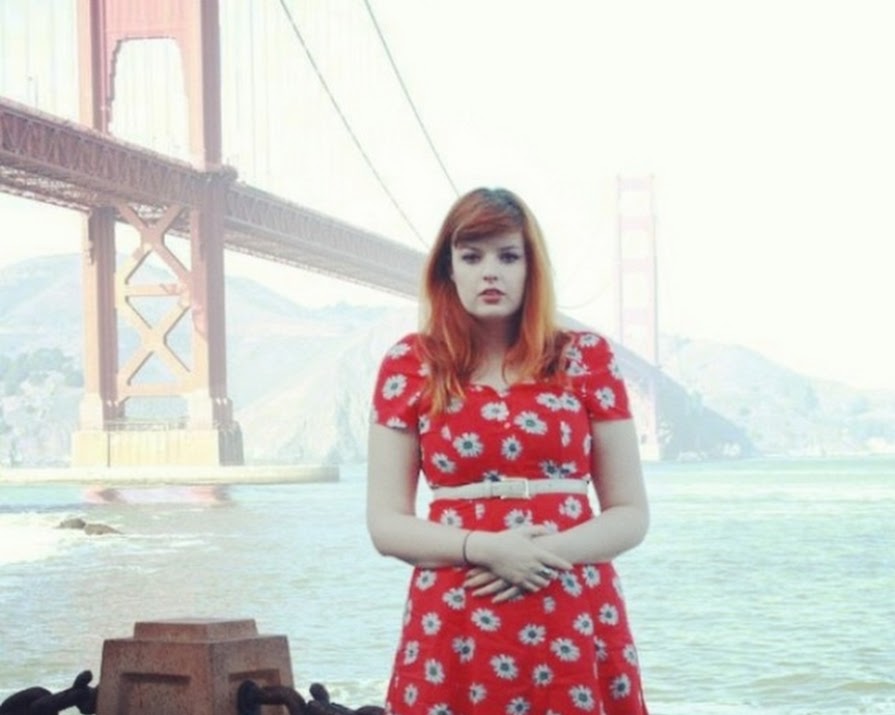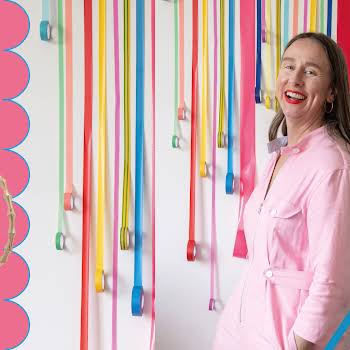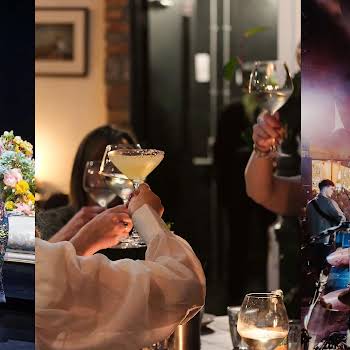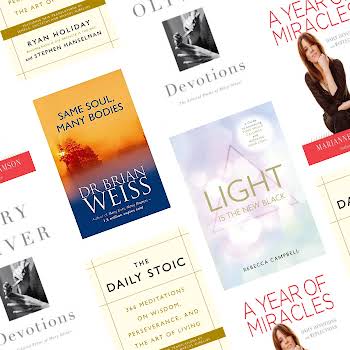
By Jeanne Sutton
26th Feb 2014
26th Feb 2014
400,000?Irish people have left this island since the economic crash-and-burn in 2008. Sarah Maria Griffin is one of the many who jetted off in search of employment and a different kind of life. Where Griffin’s grain of sand differs from others is that instead of writing a statistics laden and hyperlink heavy op-ed about her emigrant experience she has published a memoir.?Not Lost: A Story About Leaving Home?comes with a dubious blurb describing Griffin ?as one of the major voices of her generation.? So far so very millennial. However in the book itself Griffin never positions her work as polemic.?Not Lost?is more like a spoken word diary from a young woman in her early twenties, not a treatise from the frontlines of austerity.
Her emigration was a choice. Finding herself in San Francisco with her partner after he got offered and accepted a job in Silicon Valley, she tells a story about settling down. Which when you think about it is a pretty brave move from a young woman moving in literary circles. Told in the present tense with language looping around itself in descriptive laden paragraphs,?even visa applications are given a lyrical spin, resulting is a charming elopement.?In?Not Lost?Griffin captures the unease and excitement as she navigates an unfamiliar city and forges a new life away from the Dublin she grew up in. Be it buying essentials such as a hair dryer, adopting a cat or even just finding that neighbourhood joint where you can nail down ?The Usual? with a smile of recognition.
We caught up with Sarah to talk about her memoir and the reality of her Generation Emigration.
You moved to San Francisco after your now-husband got a job there. Did his decisions and job stability create an increased pressure for you to nest and settle?
?I didn’t feel any pressure at all, to be honest. It felt like being taken by the hand and asked to go on a journey, accepting that call, and making the choices that felt right. The pressures I felt in emigrating came from career related things – job-seeking, finding coping strategies for empty days of unemployment, trying not to disappoint anyone, sure. But never from my relationship – it is not a security blanket, it’s a team that I’m on!?
When you landed in San Francisco you were immediately confronted with the unexpected reality of unemployment. The Ireland you left behind was plagued by rejections letters, and still is, and that the media presented us with stories about young people leaving the island for more promising and generally warmer climes – did this surprise you at all?
I’ll have to admit to a moment of naivet? here ??I literally did think that I’d be in America ten minutes and have a job. I was totally clueless. I have no idea what I was thinking, to be honest, and it is a mistake I won’t be making again.?
“Americans and their television voices…” You make a lot of pop culture references in the book. The flat screen America you grew up with of canned laughter and kooky cafe staff – were you expecting that across the Atlantic? Did the reality approach the fiction in the slightest?
Yes. Sometimes I feel very alienated by it, by the ordinariness of my life in Ireland in comparison to some of the stories of the folks I meet here and the things that keep happening – but it envelops you I think too, like, Americans of all kinds bring you into their mad antics and allow you to become a character too, to assume a role and go with it. There’s an unconditional warmth to a lot of people here – they take you right in. They want you to be a part of it.
At one point in the book you are reading a status update and it prompts tears. How embracing are you of our new ways of living online?
I’m connected a lot. I like being able to just shoot my Dad a message, or send my Mam a photo of my lunch, or say something stupid to my sister. I like recording a version of my experiences on Twitter, on Facebook. It’s a big story, all of it, an exercise in communication. I was raised with video games and the internet, even at it’s early stages, so it’s a fluency thing. It’s just there when I need it, it can be turned off when I don’t.
Ireland has a tradition of writers living abroad. Some through choice such as Colum McCann and then the maybe-exiles like Joyce. Where do you see your literary journey fitting on that spectrum?
I’m not so sure – those are two heavy hitters and I’ve just put out my first book. My writing journey has really only just begun, and only kind of kicked off?because?I left Ireland. I intend to keep living abroad, but the work I produce won’t continue to exclusively focus on exile and emigration. I’m excited about making different kind of work and telling different kinds of stories.
Your novel is as much a Dublin novel as a SF novel, if not more. Can one ever leave a city behind? Do you want to come home?
Home is one of those strange, fluid ideas for me. My home is my husband, my cat – regardless of where we are. You don’t leave cities behind, really. They stay with you and become part of your identity. Every city I’ve lived in informs who I am today, and hopefully who I will become. Dublin is the largest part, and that’s something I’m thankful for.
Early on in the novel achieving ‘The Usual’ became a goal for you – what is your current usual?
Oh, at the time it was a corn muffin, two poached eggs, a side of avocado and a chicken apple sausage. Now, it’s a small plate of home fries with salsa, sour cream, avocado, cheese and green onions (?A Half Temple Of Spuds?).
Sounds pretty good. Sarah Maria Griffin is now working for a start-up and her next literary move is a piece of fiction. Keep this ‘migr? on your radar. Sarah Griffin is now working for a start-up and her next literary move is a piece of fiction. Keep this ‘migr? on your radar.
Buy Not Lost?here.
Jeanne Sutton?@jeannedesutun























